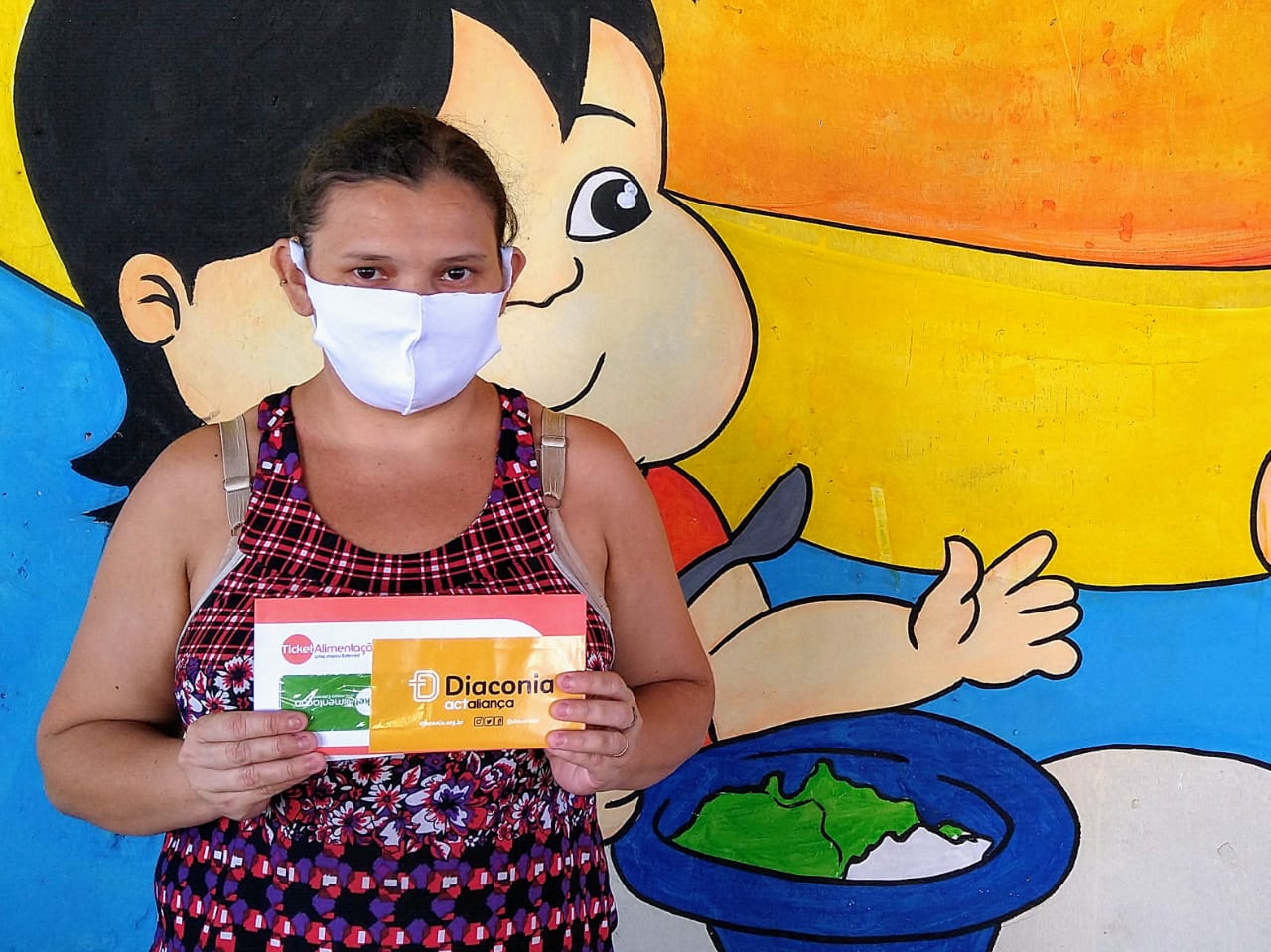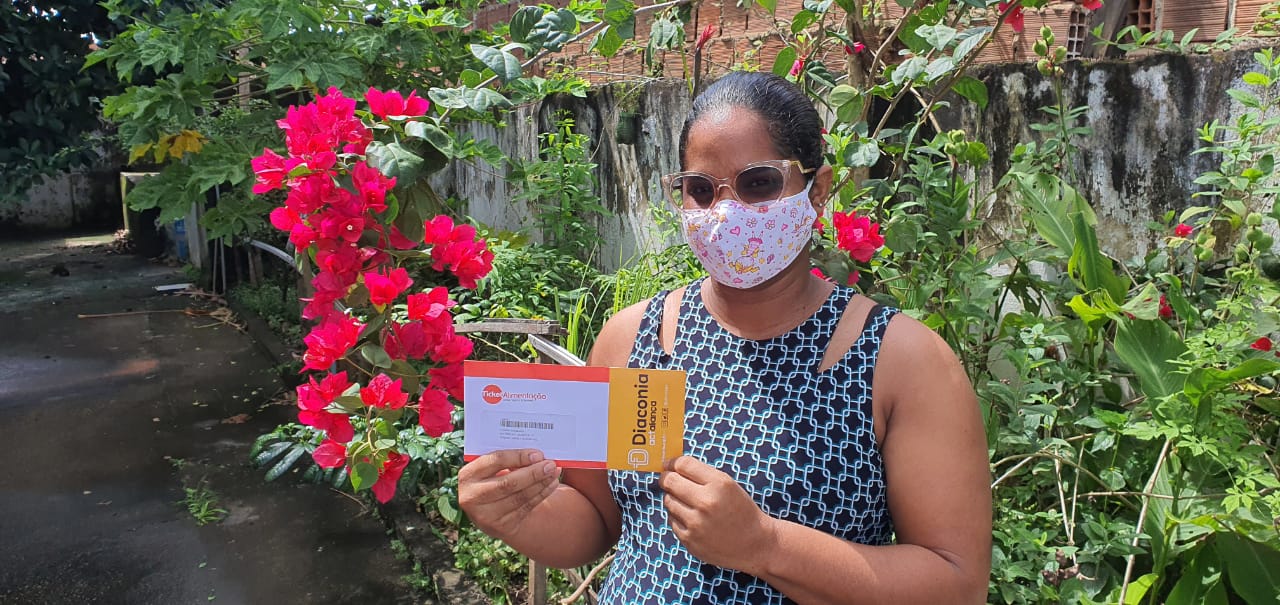
Maria Conceição da Silva, 35, lives in the Autran Nunes neighbourhood, in Fortaleza, Ceará.
“This donation came at the right time, as we no longer knew what to do to get food,” says Maria Conceição da Silva, 35, who lives in the Autran Nunes neighbourhood, in Fortaleza, Ceará. Married and a mother of two, Maria has no professional training. Like her husband, who is a construction worker, she has found it difficult to secure income to feed the family and pay the bills. Maria’s family was one of the 1,100 families benefited this week by the delivery of food vouchers made available by the Compra Solidária campaign, by Carrefour Brazil, which is supported by the WFP Centre of Excellence against Hunger. The campaign turns donations from individuals and businesses into R$ 100 vouchers, which are then distributed by partner NGOs. Over the past week, Diaconia, an NGO operating in the northeast of Brazil, distributed the cards to families in the metropolitan areas of Recife (Pernambuco), João Pessoa (Paraíba) and Fortaleza (Ceará).
The campaign aims to provide additional support to families affected by the socioeconomic consequences of the pandemic. When the crisis started, the life of Shirlane Maria dos Santos, 32, changed drastically. Now pregnant with her third child, Shirlane is a housewife and her husband stopped working as a driver due to a drop in demand and also for fear of taking the virus home. The family had to survive on the help of close friends until the R$ 600 emergency payment provided by the Federal Government arrived. “It was – and continues to be – a very difficult time. With the help I receive I have to use R$ 350 for rent and other expenses like water and electricity, and still guarantee food for my children. With the food voucher I just received, I will be able to buy basic food items for my family”, said Shirlane.

Shirlane Maria dos Santos, 32, is pregnant with her third child.
Unemployment also affected the family of Maria Moteiro, 35, who lives in Jaboatão dos Guararapes, in the metropolitan region of Recife. As a consequence of the pandemic, her husband lost his job and the family of four is now living with the help of relatives and donations. “None of my children work. It is very difficult to live in this situation, especially because we pay rent. Our only income has been government aid”, she says. Renata Ferreira, 27, who also relied on informal work, has struggled to feed her four children. “We are really struggling. I am the only one here to take care of these children”, she said. Renata is on a waiting list for the city’s housing programme, but in the meantime, she still has to pay rent.
The campaign – The donations carried out by Diaconia this week are part of the first batch of 6,000 food vouchers from Carrefour’s Compra Solidária campaign. In addition to Diaconia, other NGOs are also delivering those cards: Ação da Cidadania, Cáritas and Fundação Amazônia Sustentável (FAS), which will cover 12 states and the Federal District. Depending on the location and logistical specificities, NGOs will distribute the cards directly to the population they serve or deliver pre-assembled food baskets. Beneficiaries will be able to use the cards at any store, as long as they are used to purchase essential products. The WFP also recommends that families buy fruit and vegetables, preferably from local retailers.





